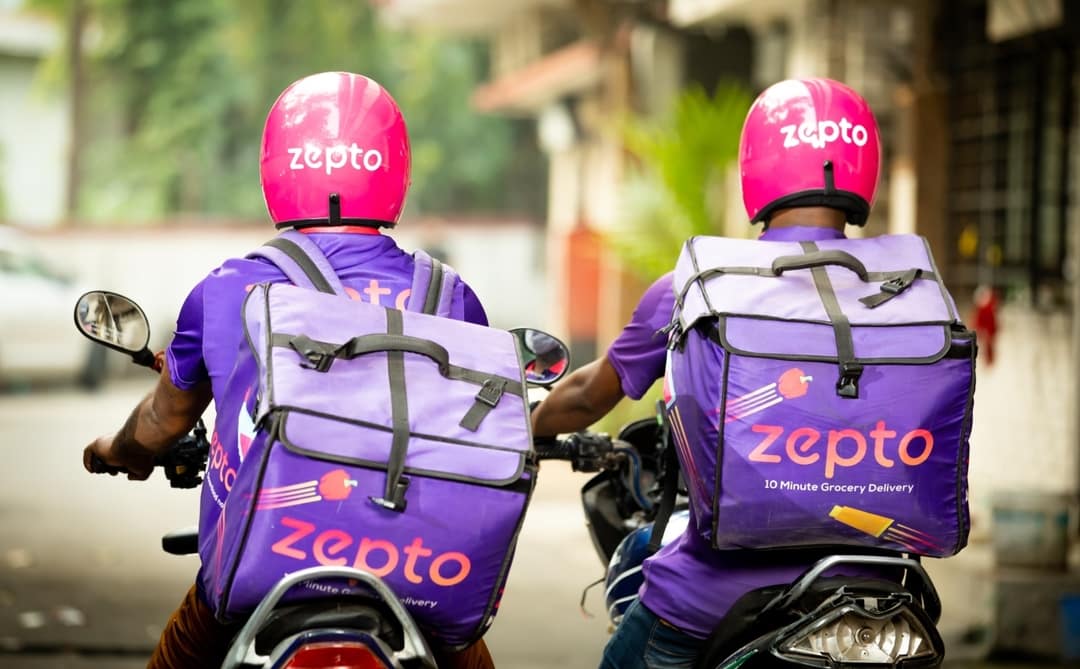
Zepto secures $200 million in Series E round, is India’s first unicorn in 2023
Despite questionable business models, quick commerce companies still seem to be lucrative enough for investors. So much so, that quick-commerce and online grocery startup Zepto, was crowned India’s first unicorn for 2023, courtesy a new Series E round led by US-based StepStone Group.
The round saw participation from Goodwater Capital and existing investors including Nexus Ventures, Glade Brook, and Lachy Groom. This marks StepStone’s first direct investment in the country – StepStone put in $75 million, while Goodwater Capital invested another $30 million. The remaining $95 million came from Nexus Venture Partners, Glade Brook Capital and Lachy Groom. The round, easily the largest for an Indian startup this year, comes as VCs are facing intense scrutiny for the amount of money that was poured in between 2020-22 and the doomsday-ish returns achieved so far.
This funding milestone marks a significant development for Zepto – the company’s rapid growth has made it the first unicorn, with a valuation surpassing $1 billion, to emerge in the country after a significant gap of 11 months. For those who need a reminder, the last Indian startup to enter the coveted unicorn club was Molbio Diagnostics. It is a far cry from the funding boom in 2021 – when unicorns seem to pop up by the dozen – but it still signals that better times may be ahead for the startup ecosystem.
The current round of funding has propelled Zepto’s valuation to $1.4 billion, a steep increase from the $900 million it was valued at in May 2022 (at that time, it raised $200 million in Series D funding). Furthermore, California-based Goodwater Capital joined the round as a new investor.
“The investors we got onboard are high-quality, detail-oriented ones who have seen multiple cycles. Most investors have not seen a through and through cycle like this in India when it comes to technology investing and as a result they are a lot more conservative,” Zepto co-founder Aadit Palicha said. “They are a lot less willing to invest in a bear market versus some larger institutional investors, like StepStone, which have been investing for decades. They’ve got the capability to take high-quality contrarian bets in this (bear) market.”
Zepto, established in the wake of the pandemic, operates in the burgeoning quick-commerce segment. Its promise of delivering over 6,000 grocery products within 10 minutes has resonated well with consumers and in the quick commerce sector, where it competes with the likes of Swiggy’s Instamart and Zomato’s Blinkit. Co-founded by Palicha and Kaivalya Vohra, Zepto positions itself as a leader in this space, outpacing rivals with an average delivery time of just 13 minutes. And going forward, it is going to see a greater number of India-centric investors, Palicha said.
The company’s dark stores, strategically positioned warehouses, have been claimed to have turned EBITDA positive, reducing burn rate and signaling a potential path to profitability. Whether that path leads to actual profitability, is a question best left to future numbers that Zepto reports. For now, the upstart claims that its sales tripled year-on-year and aims to achieve $1 billion in annualised sales within the next few quarters. It claims a monthly revenues of $50 million to $60 million in key metros like Delhi, Mumbai, and Bengaluru. But growth beyond those metros is where Zepto — like other players in the ecommerce segment — will be tested


